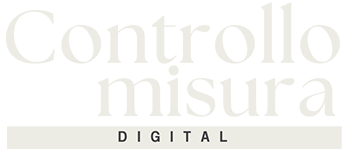Complete Tracing of Wine’s Life Cycle
By combining two platforms, both created by Autentico with RFID technology by RFID Global (a Softwork Group brand), a Tuscan winery obtained complete tracing for its wine, from bottling to consumption, going through distribution
by Vittoria Ascari
The Tuscan winery ColleMassari includes four estates cultivated with vines which produce over 20 tons of wine per year. The result is, wine acknowledged with awards by Italian and foreign wine critics.
Faced with such excellence, how can the bottles and boxes of wine be protected from counterfeiting and from the uncontrolled distribution of the parallel market, thereby preserving their value? How can each bottle of wine be identified and localized, from the production process to distribution to consumption? How can operating efficiency of the winery and, at the same time, the consumer’s brand experience be enhanced?
The technological answer to these requirements is called Autentico NFC, the platform for counterfeiting prevention and distribution control, and Autentico Chain for the management of production and logistics, by placing RFID tags on boxes and pallets of every production lot. Combining these two solutions, both created by Autentico with RFID technology by RFID Global (a Softwork Group brand), a complete tracing is obtained, from bottling to consumption.
An algorithm “names” the tag, which cannot be duplicated
The first operation by Autentico NFC consists in “naming the NFC Tag” with a proprietary algorithm, thereby making it impossible to duplicate; the tag is associated to the bottle on which it is placed, while its memory contains information concerning the wine, which can only be read using the App and may then be saved online on the cloud. After applying the tag on the bottle, this is placed in its box (in turn equipped with an RFID Tag) which, as it goes through Autentico Chain’s mobile tunnel, is automatically detected and its data are inserted in the virtual RFID warehouse.
Afterwards, when an order is received, the operator associates the specific boxes or bottles to the distributor who requested them, so as to associate every order processing to a production date.
Once the bottle reaches the market, the consumer using the App on a smartphone may verify its authenticity, even without an Internet connection, by reading the wine’s fact sheet: at the same time the App will communicate the geographical position of the bottle to the main server, taking advantage of the cellphone’s geolocation service.
But the consumer may take part even more actively, by notifying the potential fake, if the App does not detect a valid Tag, and by sending messages to ColleMassari relative to a specific bottle purchased: from this standpoint the consumer also becomes a controller of the product.
From now on, the winery may check the NFC readings by accessing the reserved web area of website autentico.it.
A special machine created to produce smart labels
Let us now analyse the way the NFC Tag is applied to the bottle. During mass production by the winery, where in a single morning as many as 15,000 bottles may be filled, which quickly go through the production line, the application of the tag is actually a problem, since the process of radio frequency labelling would slow down the process unacceptably; naming the NFC tags with production data takes about 1.6 seconds (including the protection and blockage processes), which is an enormous time lapse considering the speed at which wine is bottled.
To overcome this obstacle, Autentico NFC relies on the RFID Label Inserting Machine, a special machine developed for this purpose, which automatically pairs up the RFID inlay with the winery’s paper label, producing up to 9,000 RFID smart labels and hour. The winery can therefore carry on bottling without any deceleration or changes in the production chain, obtaining a product already fitted with its electronic identity card to prevent counterfeiting.
Managing production and warehousing using a tunnel
Autentico Chain is the hardware/software platform which manages production and warehouse logistics using RFID, by means of a tunnel purposely developed by Autentico’s laboratory: The RFID tunnel is portable, it may be integrated in the production chan or placed in the winery according to the requirements.
Autentico Chain traces automatically the production of the wine lot fitted with RFID tags which goes through the tunnel, providing precise information for a detailed control of stock and inventory. Besides, the system receives the lists of orders and allows controlled processing, verifying the consistency of the lot and the quantity of the items.
Following the application of the RFID tag on the box in the production line, the box itself goes through the FID tunnel, which automatically detects both the boxes and the bottles inside them memorizing data and associating them tot he relative lot and pallet. Having completed the packaging phase, the boxes are placed on the pallets and traced automatically by the central processing system (CPS) which remote-controls all elements.
In the order processing station, equipped with handheld RFID PC in HF band, orders are shown on a tablet and the operators may complete them reading directly the external tag.
Finally, the production control Web Application, which may be reached everywhere by means of a browser, allows to verify in every moment the state of the production, the stocks in the warehouse and the orders being processed.
The benefits obtained by using the platforms
Summarizing, the ColleMassari winery decided to combine the two platforms to trace with RFID the entire life cycle of its wine: Autentico Chain envisages the application of RFID tags on the pallets and boxes, while Autentico NFC traces every single bottle of wine, on whose label an NFC Tag is placed.
The advantages generated by Autentico may be summarized as the solution of three problem: wine counterfeiting, the control of the parallel market and “Italian sounding” products, synonymous with economic loss and damage to the global “Made in Italy” brand.
Since the application of the RFID tags began in February, in eight months it reached a count of 250,000 tags applied on the bottles, around 40,000 tags on the boxes and over 500 tags on the pallets (the survey is dated October 2019).

